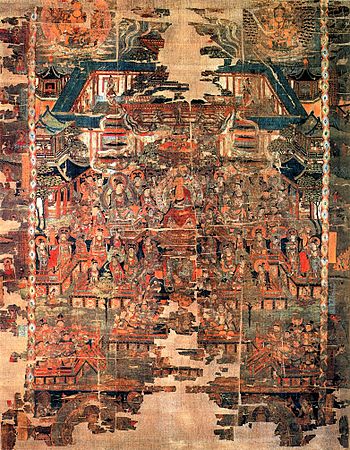
NYU has produced eminent scholars in the fields of philosophy and law. The late Ronald Dworkin and Thomas Nagel are two of the most notable examples. In a recent Sunday Review, Samuel Scheffler, another NYU professor whose appointment bridges these two disciplines broached a question that is not often taken up by either lawyers or philosophers and that's the afterlife ("The Importance of the Afterlife. Seriously," NYT, 9/21/13). Scheffler isn't dealing with the question of whether there is soul that lives on in heaven or hell. He is dealing with the life that goes on after we are gone and his premise is that many things wouldn't make sense in this life, if we didn't think human life was going to go on after us. It's a little bit the notion that Beckett expresses humorously in Endgame when Clov asks
"Do you believe in the life to come?"
and Hamm replies,
"Mine was always that."
Scheffler isn't dealing with questions of heaven or hell. He avoids theology by materializing the question of the afterlife, in much the way that insurance companies do. From an actuarial point of view why would one want to expend energy on certain activities, if the world were coming to an end?
"If you were a cancer researcher, you might be less motivated to continue your work,"
he remarks. The end of the world would have a similar effect on
"an engineer working to improve the seismic safety of bridges."
But when he brings up the question of novelists, playwrights and composers he's on shaky ground. Sure most creatives dream they will produce classics that will live on forever. But the fact is that few do. Within a generation or two many well-known writers will fade into oblivion. Updike might have staying power, but few people today talk of John O'Hara, the author of Appointment in Samarra and Butterfield 8 who was a legend in his time. Ever hear of a writer named John P. Marquand who won a Pulitzer for The Late George Apley in 1938? How many Rembrandts, Beethovens and Tolstoys are there in recorded history? Must a writer maintain the delusion of immortality in order to function? Or is there something to be said for the fact that writing, composing and painting would have a function even if Chicken Little were right and the sky was falling. After all in the case of a doomsday scenario who is going to write the eulogy for the human race? Who is going to provide the music at the service? Who will provide the design of life's final brochure?
{Painting of the Paradise of Bhaishajyaguru)
{This was originally posted to The Screaming Pope, Francis Levy's blog of rants and reactions to contemporary politics, art and culture}